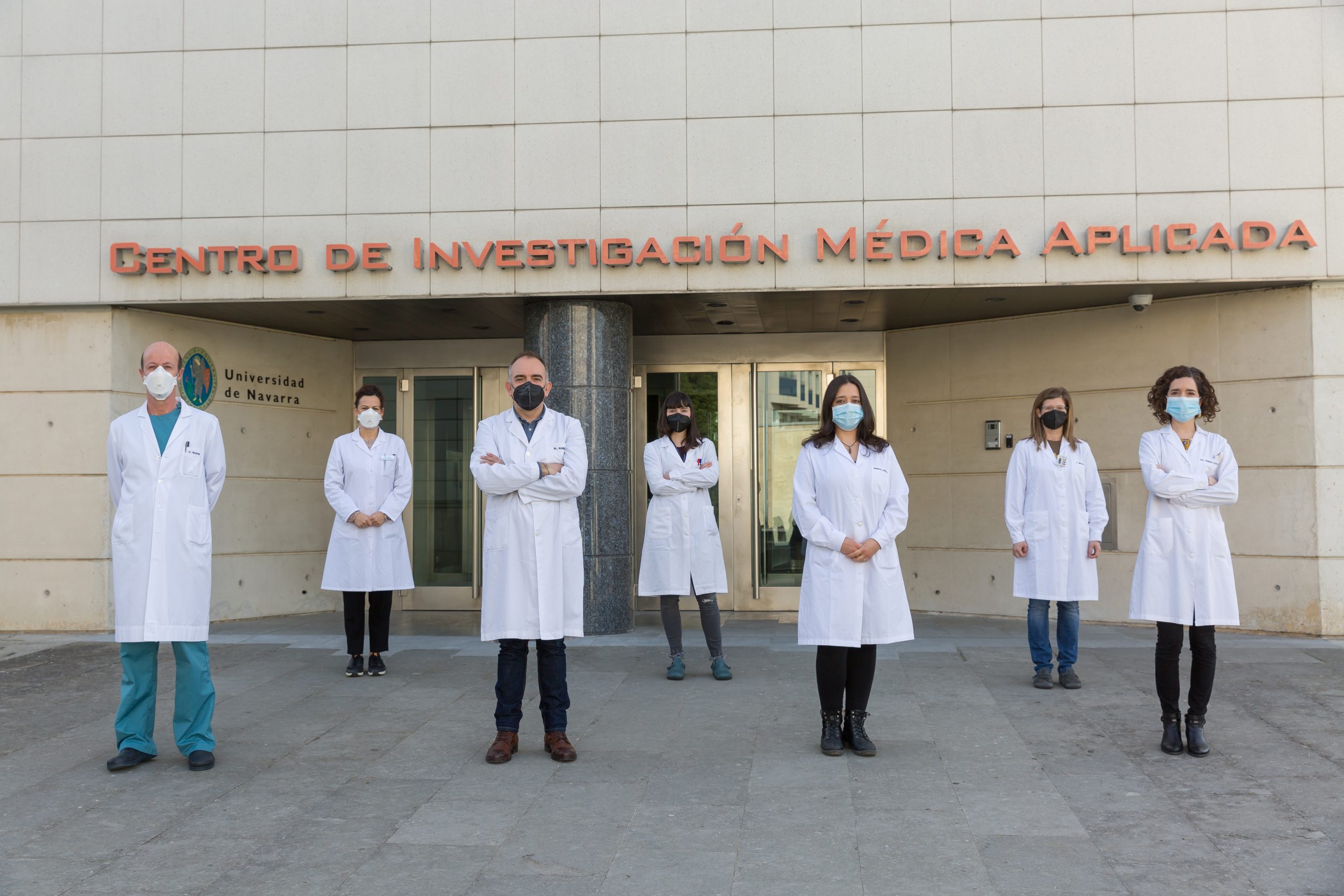- Researchers at the Clinica Universidad de Navarra and CIMA Universidad de Navarra are leading an international study which has revealed a novel set of genes specific to multiple myeloma which condition its manifestation and development
- The research also shows that the expression of these genes allows for better classification of patients with this disease in terms of survival
- The finding, published in Leukemia, will open the doors to the development of new therapeutic RNA-based strategies for multiple myeloma, the second most common cancer of the blood
Pamplona (Spain), February 22, 2021. Researchers at Clinica and CIMA of the Universidad de Navarra are leading an international study which has revealed a new set of genes specific to multiple myeloma which condition its manifestation and development. This discovery has identified 40,511 new non-coding genes (up to now called junk genes) involved in the evolution of this cancer of the blood.
The study also shows that the expression of the genes, together with the genetic alterations connected with a negative prognosis in patients with multiple myeloma, allows for better classification of the survival results.
The results of this work have been published in Leukemia, one of the most prestigious international scientific journals in the field of hematology, and opens the door to new RNA-based therapeutic strategies for multiple myeloma, the second most frequent hematologic cancer.
The group led by Dr. Iñaki Martín-Subero from the Instituto de Investigaciones Biomédicas August Pi i Sunyer (IDIBAPS) in Barcelona, and the group led by Dr. Ari Melnick, from the Weill Cornell Medical College in New York, among other institutions, have participated in the research.
The RNA molecule which ‘translates’ multiple myeloma
Multiple myeloma is an incurable disease originating in the bone marrow. Its biological heterogeneity makes its clinical management challenging. Recent oncological research has focused on some molecules involved in the regulation of the genome and gene expression. Specifically, this research has deciphered a type of specific long non-coding RNAs (lncRNAs), which has allowed the researchers to identify new genes with a key role in the origin and workings of the cancer cells.
“The initial study for detection and definition of the complete lncRNAs transcriptome was carried out in samples from 38 multiple myeloma patients proving their functionality in the disease. We have also shown its potential as a biomarker by analyzing the most complete series of patients with multiple myeloma to date, the so-called CoMMPass study”, said Dr. Xabier Agirre, a researcher in the Hemato-Oncology Area at CIMA.
Clinically, “we have shown that the expression of lncRNAs, together with the negative-prognosis genetic alterations in patients with multiple myeloma, offers much better sub-stratification of patients regarding survival”, affirmed Dr. Felipe Prósper, co-director of the Hemato-Oncology Program at CIMA and the Hematology Service of the Clinica Universidad de Navarra.
As stated by the researchers, this advance shows that there are many other key genes for the development of this disease, which may be interesting therapeutic targets to open the doors to novel therapies based on the specific RNAs of multiple myeloma.
This research has been carried out within the framework of the Instituto de Investigación Sanitaria de Navarra (IdiSNA) and the Centro de Investigación Biomédica en la Red de Cáncer (CIBERONC). It has had the support of Iberdrola, through the Asociación Española contra el Cáncer (AECC) and its Accelerator Awards with the joint participation of Cancer Research UK and the Fondazione AIRC per la Ricerca sul Cancro (AIRC). It is also funded by: the European Union within the Blue Print Epigenome project, the Multiple Myeloma Research Foundation, the Spanish Ministry of Science and Innovation, the Ramón Areces Foundation, the Navarrese Government and other public and private institutions.
The results of this work are part of the doctoral thesis of Arantxa Carrasco-León, a CIMA researcher into Hemato-Oncology.
Caption: (from right to left): Felipe Prósper and Xabi Agirre together with the main authors of the article Arantxa Carrasco-León and Teresa Ezponda and other researchers of the Hemato-Onoclogy Program at CIMA.
Bibliography:
Leukemia (2021). Characterization of complete lncRNAs transcriptome reveals the functional and clinical impact of lncRNAs in multiple myeloma. Carrasco-Leon, A., Ezponda, T., Meydan, C. et al. DOI: 10.1038/s41375-021-01147-y (Read more)


